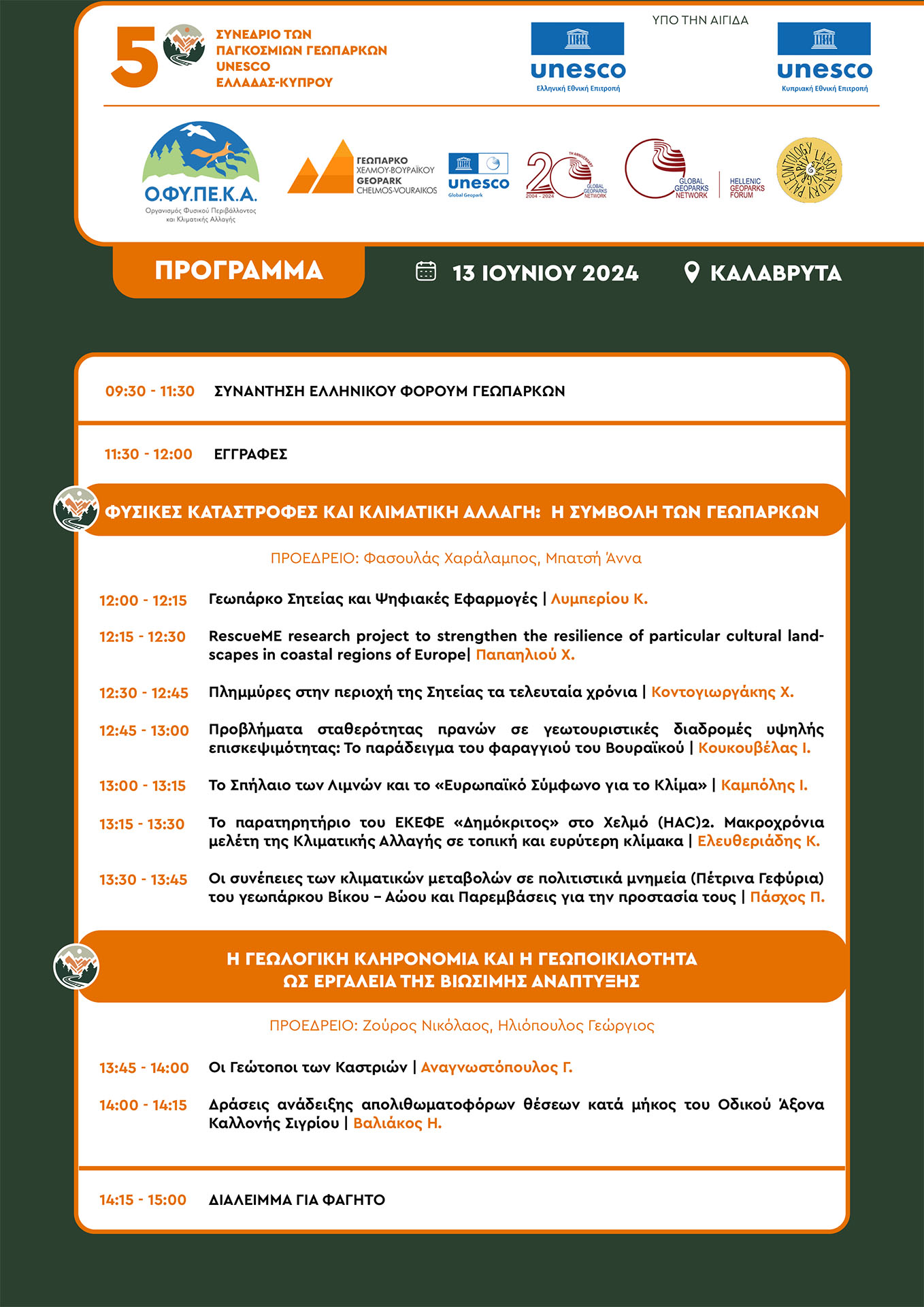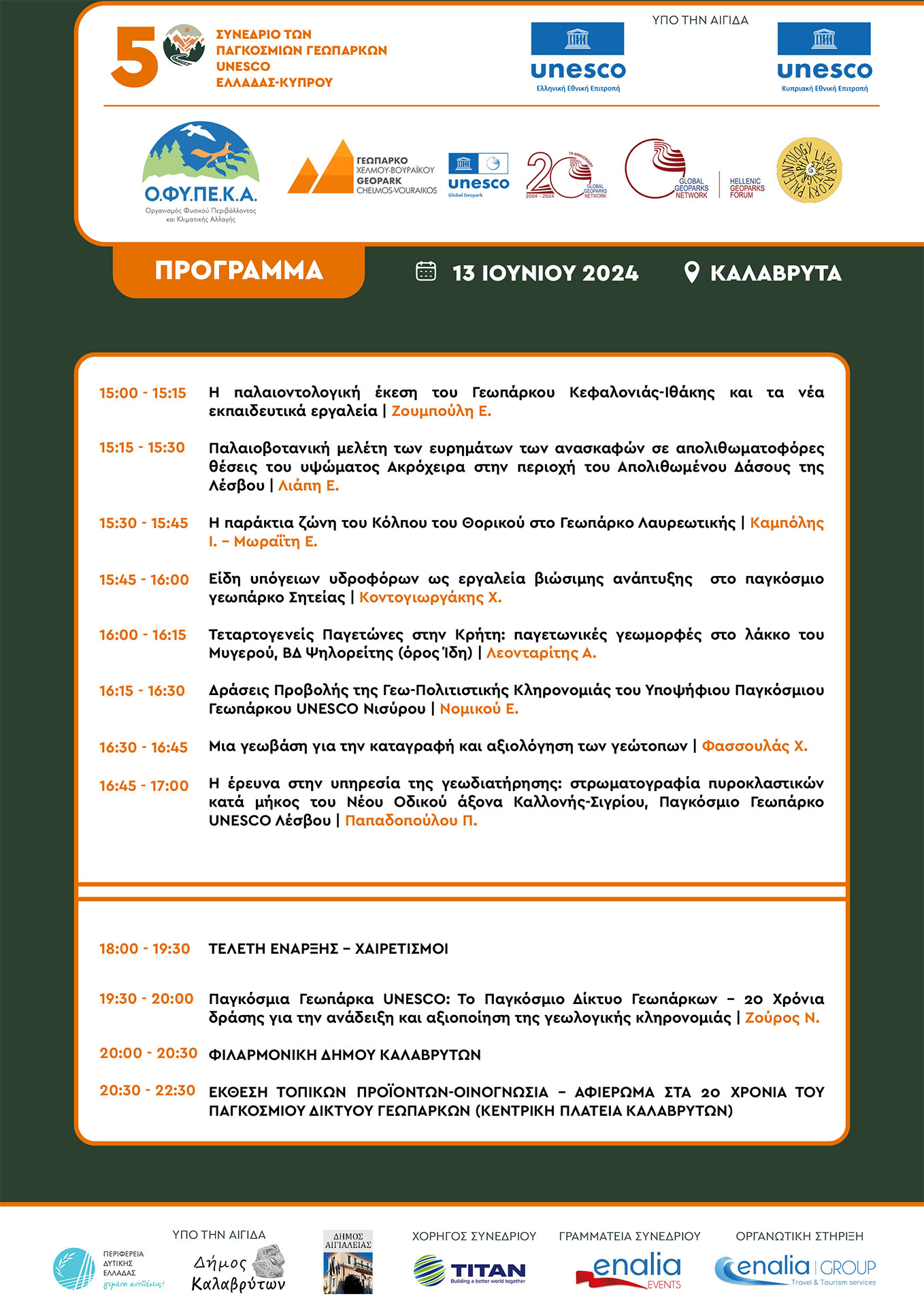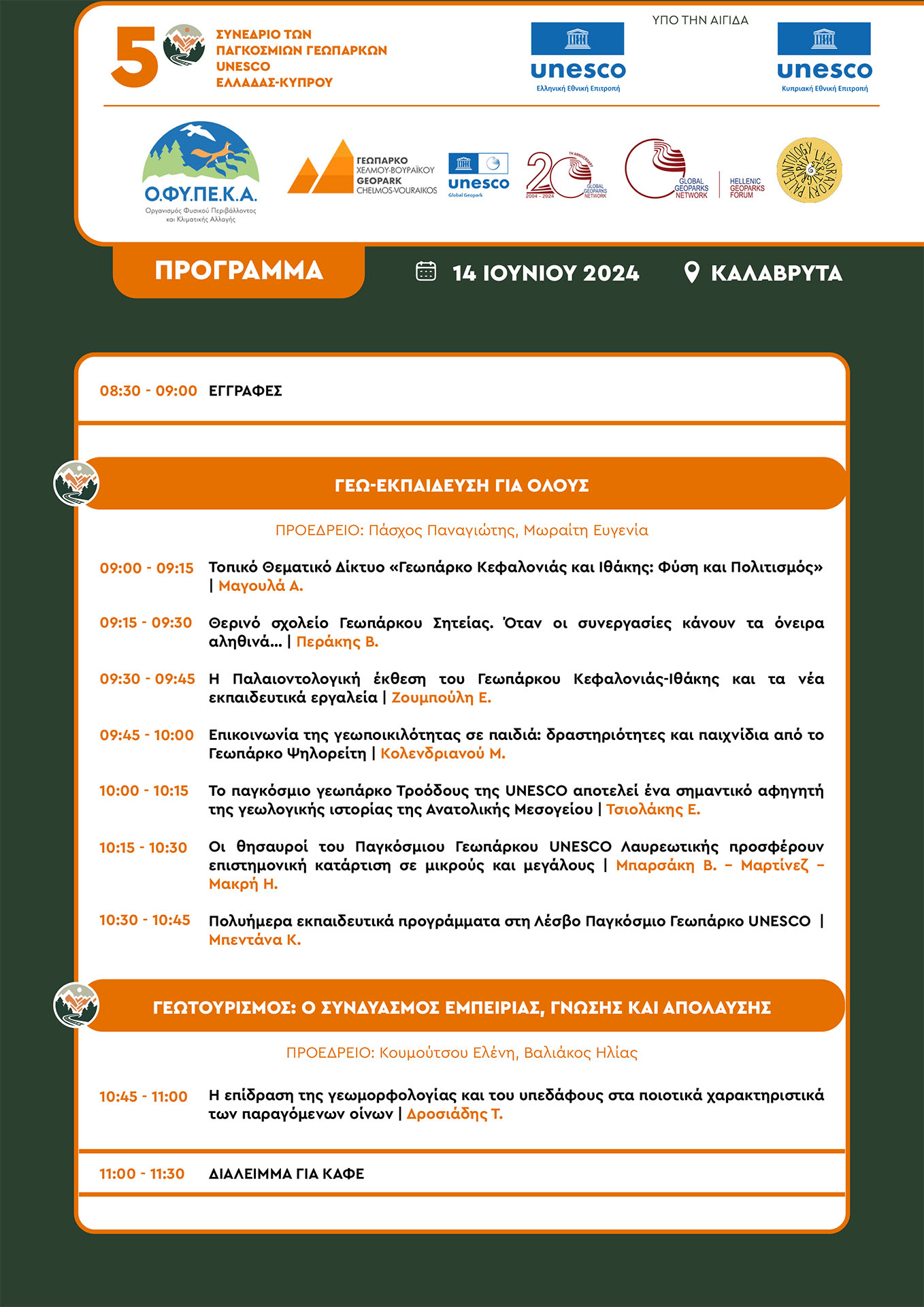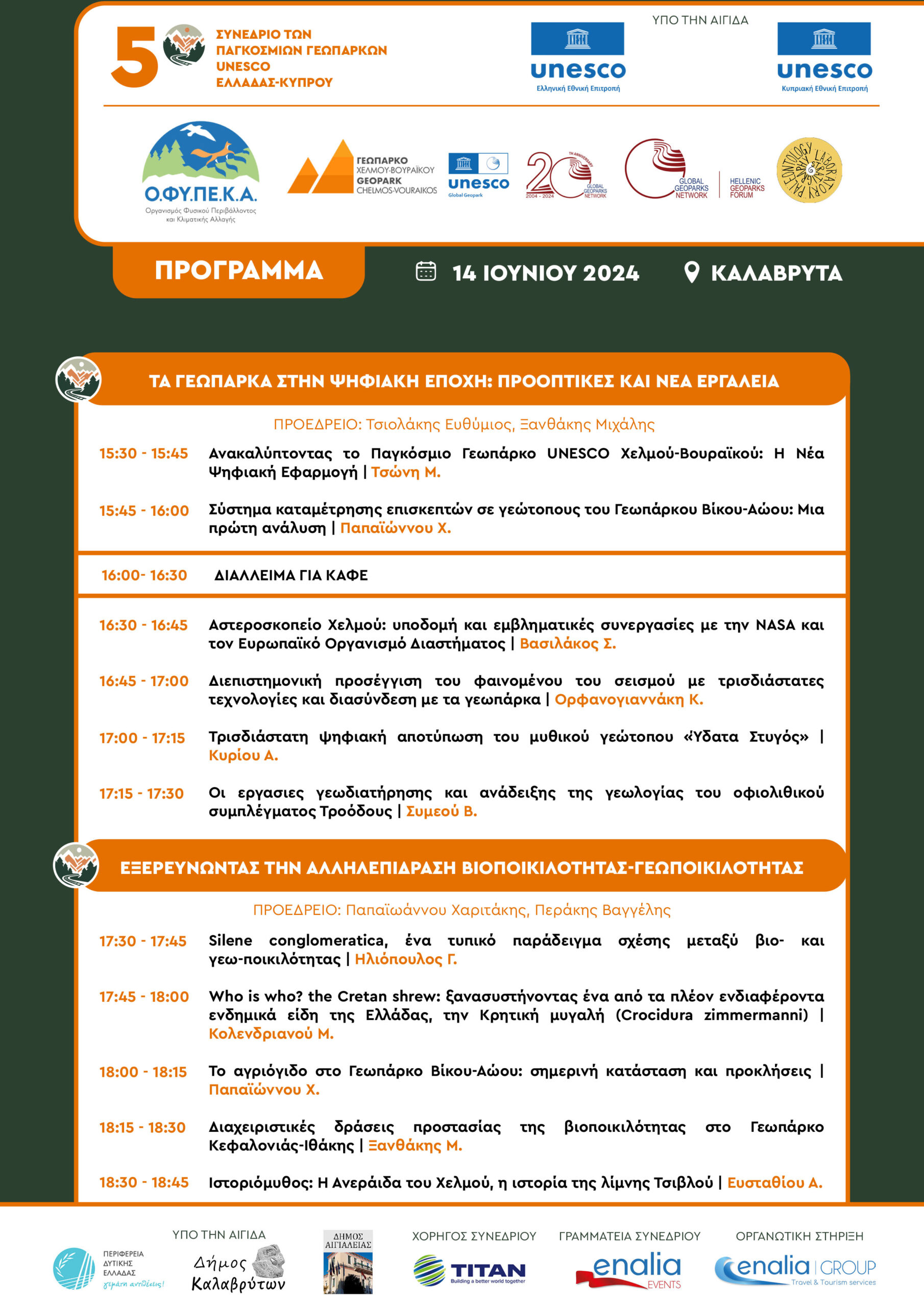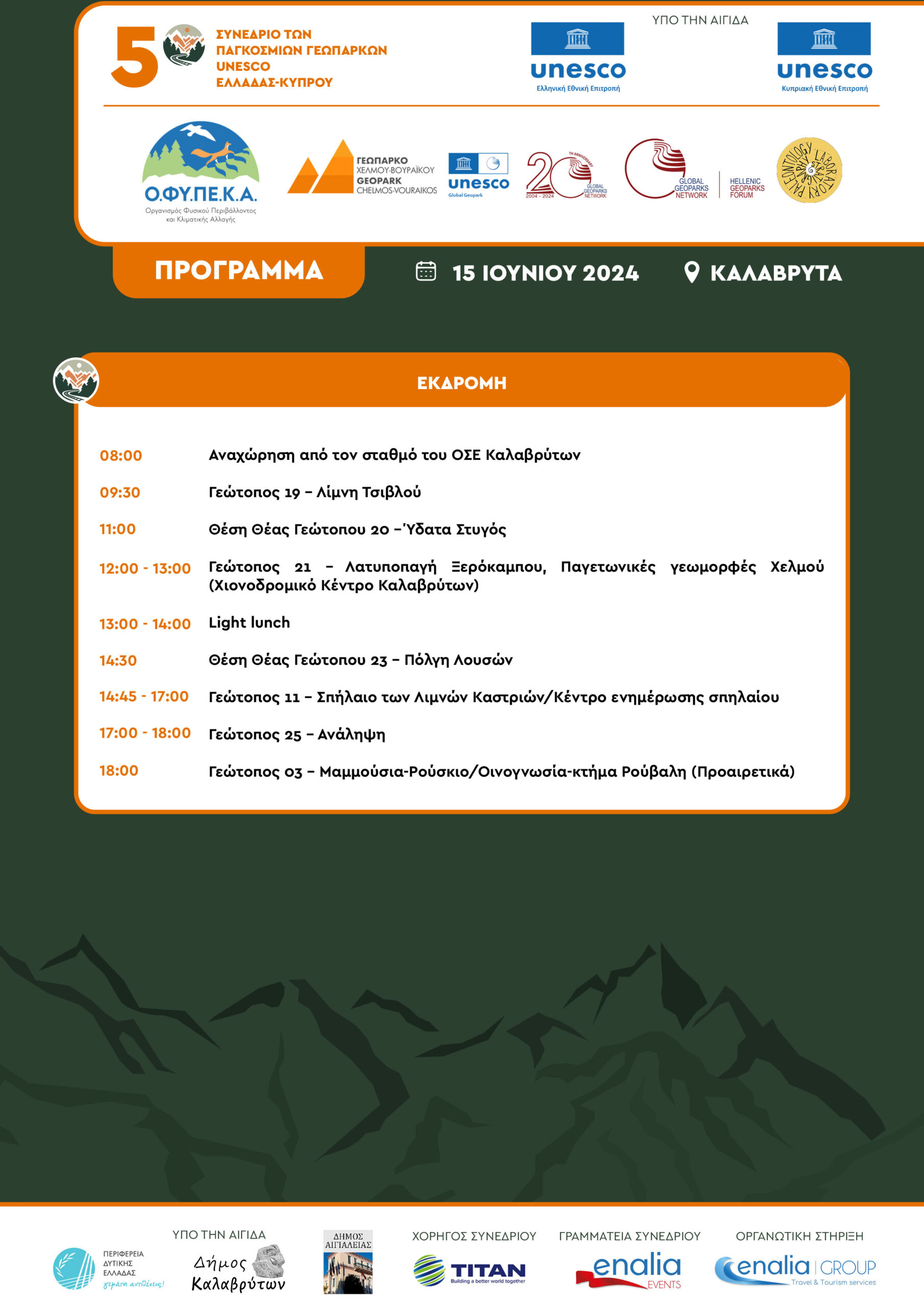ΘΕΜΑΤΙΚΕΣ ΕΝΟΤΗΤΕΣ
Η ενότητα αυτή αφορά στην παρουσίαση της γεωλογικής κληρονομιάς και/ή της γεωποικιλότητας σε
περιοχές γεωπάρκων ή και υποψήφιων γεωπάρκων, η οποία έχει χρησιμοποιηθεί ή μπορεί να
χρησιμοποιηθεί μελλοντικά με σκοπό την κάλυψη των αναγκών μια κοινωνίας με τρόπο που δεν θα
υποβαθμίζει την δυνατότητα των μελλοντικών γενεών να καλύψουν τις δικές τους ανάγκες. Ιδιαίτερα
ευπρόσδεκτες είναι παρουσιάσεις που αφορούν σε καλές πρακτικές χρήσης της
γεωποικιλότητας/γεωλογικής κληρονομιάς ως εργαλεία βιώσιμης ανάπτυξης.
Η ενότητα αυτή αφορά στην κατανόηση της σχέσης μεταξύ βιοποικιλότητας και γεωποικιλότητας η
οποία είναι ζωτικής σημασίας για την προστασία των οικοσυστημάτων και την επιλογή
αποτελεσματικών στρατηγικών για την διατήρηση και την διαχείρισή τους. Ιδιαίτερα ευπ[ρόσδεκτες
είναι παρουσιάσεις που αφορούν την βιοποικιλότητα στις περιοχές των γεωπάρκων ή και υποψήφιων
γεωπάρκων καθώς επίσης και στον τρόπο που αυτή συνδέεται με τα ιδιαίτερα γεωλογικά
χαρακτηριστικά του τόπου.
Τα γεωπάρκα μπορούν να συμβάλουν αποτελεσματικά στις εκπαιδευτικές ευκαιρίες για όλους τους
τομείς της κοινωνίας. Στην ενότητα αυτή μπορούν να παρουσιαστούν εκπαιδευτικά προγράμματα
ή/και εκπαιδευτικές δράσεις που έχουν σχεδιαστεί ή/και εφαρμοστεί από τα γεωπάρκα ή και
συνεργαζόμενους φορείς και απευθύνονται σε διαφορετικές βαθμίδες εκπαίδευσης (πρωτοβάθμια,
δευτεροβάθμια, τριτοβάθμια και εκπαίδευση ενηλίκων).
Στην ενότητα αυτή εντάσσονται παρουσιάσεις που αφορούν σε δραστηριότητες ανάπτυξης των
τουριστικών δυνατοτήτων ενός γεωπάρκου με κίνητρο την εμπειρία, τη γνώση και την απόλαυση της
γεωποικιλότητας και της γεωκληρονομιάς. Ιδιαίτερα ευπρόσδεκτες είναι παρουσιάσεις καλών
πρακτικών με αναφορά στον αντίκτυπο των δραστηριοτήτων τόσο στους συμμετέχοντες όσο και στην
τοπική κοινωνία.
Η κλιματική αλλαγή και οι επακόλουθες φυσικές καταστροφές είναι ένα παγκόσμιο πρόβλημα. Στόχος
της ενότητας αυτής είναι η παρουσίαση των επιπτώσεων του προβλήματος στις περιοχές των
γεωπάρκων καθώς και η παρουσίαση των δράσεών τους που αφορούν στην αντιμετώπιση του
προβλήματος.
Οι ψηφιακές τεχνολογίες έχουν εισβάλει σε πολλές και διαφορετικές πτυχές της ανθρώπινης
πραγματικότητας συμπεριλαμβανομένων τω γεωπάρκων και έχουν αποδειχτεί ένα εξαιρετικό εργαλείο
στην μετάδοση της γνώσης και την επικοινωνία. Η ενότητα αυτή έχει ως στόχο να παρουσιάσει νέα
ψηφιακά εργαλεία καθώς και νέες μεθόδους που μπορούν να χρησιμοποιηθούν ή έχουν πρόσφατα
χρησιμοποιηθεί για την προώθηση της γεωποικιλότητας και της γεωλογικής κληρονομιάς ή/και την
ανάδειξη των γεωπάρκων ως τουριστικού προορισμού.
Υπο την Αιγίδα


Διοργανωτές





Συνδιοργανωτές



Χορηγοί



